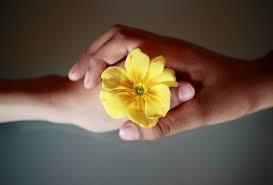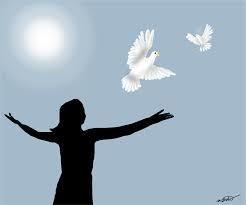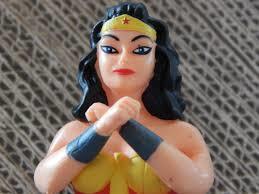Tracy Shawn's Blog, page 2
April 13, 2021
Why I’m Not Sorry for Still Saying “Im Sorry!” (And Why You Shouldn’t be Either)
by
Tracy Shawn, M.A.

A dear friend (whom I’ll call Nancy) recently had to delay two of our agreed-upon meeting times, which, then, had to be ultimately canceled. She had good reason: she was in the middle of a move and was tending to all the last-minute packing, appointments, and phone calls that can leave anyone overwhelmed and distracted. Still, there were no apologies. Nancy, I have to say, is a whip-smart go-getter, a forthright person whom I greatly admire. I told myself that she deserved a pass since she had so much on her plate—yet I’m pretty sure I’ve never heard Nancy apologize.
I’m guessing that Nancy, along with many others, who strive to be assertive, may have too readily taken up the advice that saying “I’m sorry” can often be construed as unnecessary, too self-deprecating, and weak. And I agree—but not across the board—nor across personalities.
For instance, you don’t need to say you’re sorry if someone else’s cart at the market bangs into yours, especially if that knee-jerk response undermines your confidence. It’s perfectly reasonable to simply smile and move on. Yet I often apologize when things like that happen. It’s my way of smoothing things over in case the other person is in such a foul mood that just one more stressor is going to throw them overboard. For me, I don’t feel as if saying sorry for simple mishaps—no matter whose “fault” it is—lowers my confidence, yet for someone else it may. So, it’s important to check in with yourself to see if those unnecessary apologies make you feel better or worse about yourself—and then act accordingly.
On the other side of unnecessary apologies, you may want to take a look about how it affects other people’s perceptions of you. Yes, we all know that we shouldn’t worry what others think of us—yet, again, this is another blanket statement that doesn’t always hold true. For instance, if you apologize too much in the work place (or even amongst your friends and family), other people may not take you or your ideas as seriously. As an example, you may have gotten into the habit of saying something like: “I’m sorry, but I’d like to interject…” (which may make you think as if you appear more accommodating, yet undermines other’s confidence in you), instead of simply stating: “I’d like to add…” when you’re in a group situation.
Being aware when the urge to utter an unnecessary apology is stemming from simple politeness or whether it’s a self-sabotaging habit that needs to be curtailed can help you decide your “I’m sorry” quota. You may still want to say you’re sorry, then, for something that others could consider annoying, such as eating too loudly at a meeting, but you don’t need to apologize for your own needs. So, instead of saying, “I’m sorry, but may I have an extra day to finish this assignment?” could be phrased instead as: “May I please have an extra day to finish this assignment as I need more time to research.”
Then, finally, we get to the necessary apologies. What are those? Apologies are necessary when whatever we’ve said or have done affects someone else in a negative way. It’s those times when we forgot a friend’s birthday, spat out something hurtful and mean in a fight, broke a promise to a loved one, and, yes, screwed up another person’s schedule by having to delay and/or cancel a meeting time—the list goes on.
The real apology involves expressing both responsibility and regret, and at times, a request for forgiveness. Therefore, it’s not something like: “I’m sorry if what I said made you upset.” It’s more like: “I was being insensitive. I’m sorry and I feel badly about it. I hope you can forgive me.” Real apologies, then, show others that you value your relationship with them, as well as respect them enough to acknowledge their feelings and worth. In turn, real apologies do not diminish self-esteem nor make one less assertive; rather, they can increase self-worth by helping one maintain healthy relationships with others. So, please, no matter how “fashionable” it’s become to not say sorry, don’t let good, old-fashioned manners fly out the window. For your sake and others, it’s still more than okay to apologize—especially when it’s necessary!
Author and speaker Tracy Shawn lives on the Central Coast of California. Her debut novel, The Grace of Crows (Cherokee McGhee, 2013), won awards for Indie fiction, including the 2013 Jack Eadon Award for Best Book in Contemporary Drama and Second Place for General Fiction from Reader Views. She’s written numerous articles for print and online publications and has had three short stories published in literary journals. Ms. Shawn is currently revising her second novel. You can visit her website at: www.tracyshawn.com and follow her on Twitter at @TracyShawn
April 2, 2021
Sudden Fiction/Twitterature by Tracy Shawn
by
Tracy Shawn

The End of the Road
“Don’t take your eyes off the road.” She clamps her hand on his wrist.
“You’re the one who’s going to cause an accident.” He’s still looking at his phone.
She’s crazy with fear. She’s so crazy with it that she screams. He over banks the next turn. They fly without end.
Finding Clarity
When her husband excused himself from Thanksgiving dinner to take a call, she also excused herself. But instead of fleeing to the bathroom, she ran out the front door and drove to the jazz club. Inside the resonance of the bass and the call of the trumpet, she found clarity.
Escaping the Fog
All those bright, happy faces. Waiting. They were all waiting for her to “settle down.” And then she caught the look on Brian’s face. Not of love, but of smug knowing he “had it all.” She whipped off her wedding veil and bolted out of the fog.
Author and speaker Tracy Shawn lives on the Central Coast of California. Her debut novel, The Grace of Crows (Cherokee McGhee, 2013), won awards for Indie fiction, including the 2013 Jack Eadon Award for Best Book in Contemporary Drama and Second Place for General Fiction from Reader Views. She’s written numerous articles for print and online publications and has had three short stories published in literary journals. Ms. Shawn is currently revising her second novel. You can visit her website at: www.tracyshawn.com and follow her on Twitter at @TracyShawn
January 22, 2021
How Reading Can Curtail Anxiety
by
Tracy Shawn

Reading, can indeed, reduce anxiety. But why? Stories provide an escape from our personal stressors and worries as well as a much-needed respite from world and local news. And reading not only offers an affordable and assessable break (it’s also a lot healthier than stress eating and binge drinking), it can also increase compassion.
On a deeper level, too, reading a novel can provide a psychological shot of courage. Renowned mythologist Joseph Campbell explains that when readers follow the journey of a main character, they’re able to empathize with the protagonists’ struggles and rejoice in their triumphs. Journalist Bill Moyers also points out that everyday people (“who may not be heroes in the grand sense of redeeming society”) still relate to a main character’s transformation, giving even the most fearful and anxiety ridden of us hope.
The concept that reading can reduce anxiety and increase mental health is nothing new. Etched over the door of the ancient library in Thebes was the phrase: “Healing place for the soul.” And in 1916, Presbyterian minister Samuel M. Crothers coined the phrase bibliotherapy (a combination of the Greek words for therapy and books). Among the many examples of bibliotherapy practices, both Britain and the U.S. set up libraries in hospitals during the First World War, where librarians used reading to aid in the recovery of soldiers dealing with physical as well as mental trauma.
Readers, too, intuitively feel the mental health benefits of stories. People are often tweeting, posting, and blogging about how reading helps them cope with anxiety, worry, and stress—as well as providing a healthy escape from reality. I personally, too, have learned that reading eases my anxiety—especially when I wake up in the middle of the night with those awful what-if’s!
Now science is proving mythologists, librarians, and readers right. A study at Emory University has shown that novel reading enhances connectivity in the brain as well as improving brain function. Lead author of the study and neuroscientist Professor Berns is quoted on the university’s eScienceCommons blog on December 17, 2013 as saying, “The neural changes that we found associated with physical sensation and movement systems suggest that reading a novel can transport you into the body of the protagonist.” Berns also noted that the neural changes weren’t just immediate reactions, but persisted mornings after the reading periods as well as for five days after the participants completed a novel.
Looking at both scientific and anecdotal evidence, stories in which a reader cares about the protagonist’s struggles and triumphs may help more than books with characters that readers don’t connect with (which, of course, is subjective). A psychologytoday.com piece titled “Bibliotherapy: Using Books to Help and Heal” (published on 10/01/19), also states that even though fiction is the traditional genre used in bibliotherapy, self-help books, biographies, memoirs, short stories, and even comic books can help people cope with difficult circumstances.
As noted at the beginning of this piece, reading also provides a positive—and much-needed break—from the news. And, although it’s important to keep ourselves informed, it’s easy to obsess and re-listen to the same news we already digested. This obsession cycle can make us lose perspective, which can further cloud judgement while increasing anxiety and depression.
Lastly, reading can also help one feel less alone and more connected. As author James Baldwin (1924-1987) wrote: “You think your pain and your heartbreak are unprecedented in the history of the world, but then you read. It was books that taught me that the things that tormented me most were the very things that connected me with all the people who were alive, or who had ever been alive.”
Tracy Shawn, M.A.
Author and speaker Tracy Shawn lives on the Central Coast of California. Her debut novel, The Grace of Crows (Cherokee McGhee, 2013), won awards for Indie fiction, including the 2013 Jack Eadon Award for Best Book in Contemporary Drama and Second Place for General Fiction from Reader Views. She’s written numerous articles for print and online publications and has had three short stories published in literary journals. Ms. Shawn is currently revising her second novel. You can visit her website at: www.tracyshawn.com and follow her on Twitter at @TracyShawn
September 30, 2020
Is It Possible to Be Too Empathetic? (And How to Cope if You Are)
~ 3 MIN READ

Ever since I can remember, other people’s pain — both physical and emotional — seemed to infiltrate straight into my own body and mind. As a kid, whenever someone fell on the playground, my stomach lurched up and down like an erratic elevator. Even if someone just talked about getting hurt, my belly reeled in empathy. To this day, my body still reacts the same way whenever I see or hear someone in distress (watching the news can oftentimes bring on a feeling of physical pain and panic).
The emotional absorption, though, hasn’t always been so clear-cut, as feelings like depression, fear, and anger are often kept under wraps. But, as I became older, it became more and more apparent just how much I’m affected by other people’s emotions. I can be perfectly at ease and feeling energized, but if I’m around certain people too long, I internalize their negative emotions, which makes me feel unwarranted anxiety, sadness, and exhaustion. On the other hand (thank goodness!), I also tend to feel more joyful and hopeful when I’m around those people who are honest, kind, and… empathetic.
In the last year or so, I’ve also discovered that there’s a term for people like me: empath. When I first heard it, I have to admit that it sounded like something out of a sci-fi story (the example that came to mind was Deanna Troi from Star Trek who had the ability to sense emotions and fittingly worked as the ship’s counselor). Yet, the more research I did, the more I realized how much the empath label fits.
In an article for Psychology Today titled “10 Traits Empathic People Share”, psychiatrist Dr. Judith Orloff describes empaths as people who tend to absorb other’s emotions and/or physical symptoms. An empath herself (and author of The Empath’s Survival Guide: Life Strategies for Sensitive People), Dr. Orloff lists some of the most common traits that empaths share, which include: highly sensitive natures and senses (an empath can get more easily stressed than others by noise, smells, etc.), a developed sense of intuition, a tendency to become overwhelmed, and an inclination to nurture others at the expense of one’s own mental health.
I know that I can relate to almost every part of that list… and now understand that when a family member called me “oversensitive” when I was a kid, it wasn’t because I was weak or wrong — but rather that it was simply a part of who I was — and will always be. As Dr. Orloff recommends, though, empaths learn how to center themselves so that they don’t become too overwhelmed. Empath or not, we all feel overloaded at times, so the following suggestions may help you navigate life, whether you relate to the intuitive Deanna Troi or the logical Spock!
Take Breaks: In your day-to-day life, remember to take both small and large breaks. Small breaks may be as simple as taking a couple of minutes for deep breathing exercises in your car before you get out — especially if the drive itself was stressful, lying on the couch and closing your eyes for a few minutes after grocery shopping, even taking a walk around the block when your partner’s voice is starting to grate on your nerves! Larger breaks include indulging in a long bubble bath, taking a day off from online work and social media, and getting out in nature. Taking breaks can help reset, rejuvenate, and balance — so make sure to take them as soon as you feel overwhelmed — or even know that you will.
Set Boundaries: If someone continuously makes you feel ill-at-ease and/or drains your energy, think about limiting your time with that person. And when you are in that person’s company, remind yourself that you do not need her approval… so if she wants something from you that you do not want to give, you can learn to push away any unnecessary guilt and also may feel more empowered to say no. One of the most compassionate ways, by the way, to say no is to simply thank the person for thinking of you and explain that you are too overwhelmed to take on anything else right now. If you’re not sure, you can always say that you need to check your calendar first and will get back to that person within the next several days. And, if you think you may be too much of a people pleaser (empaths tend to be), it may be very helpful not to agree to anything in the moment (unless, of course, you know that you really want to).
Trust Yourself: Last but not least, remember that you are the one who knows you the best. No one else can gauge how much time you need to recuperate. No one else can tap into your intuition. No one else can learn how to balance your own life as well as you can. So, honor your gift, realize your strength, and… trust yourself.
Author Bio: Author and speaker Tracy Shawn lives and writes on the Central Coast of California. Her debut novel, “The Grace of Crows” (Cherokee McGhee, 2013),won awards for indie fiction, including the 2013 Jack Eadon Award for Best Book in Contemporary Drama and Second Place for General Fiction from Reader Views. Tracy’s short stories have appeared in Literary Brushstrokes, Psychology Tomorrow Magazine, and most recently, Steel House Review. She’s written numerous articles for print and online publications and is a frequent contributor to psychcentral.com. She has currently finished her second novel.
August 24, 2020
When the World is Breaking Your Heart
Please note: This piece was first published on PsychCentral on August 1,2020
By Tracy Shawn, MA
~ 3 MIN READ

The other week, my husband and I were driving home after visiting a beloved family member who is struggling with the excruciating pain and to-the-bone weariness of cancer. As our car lugged down the highway, I thought about the ongoing cruelty of our world: the ravages of disease and war, the current pandemic, the never-ending inhumanity, inequality, and brutality, as well as the general disregard to our earth and the innocent creatures who are clinging to survive on it. (And, yes, I do realize that I’m just as guilty as the masses in spewing out pollution by the simple fact that I drive a car). I held back tears, and then took a deep breath as I told myself I was spiraling (which I’m sure you can tell from the above train of thought, I’m apt to do when facing a personal crisis).
And then it happened. A horribly common occurrence (according to a 2010 article in Psychology Today, it takes place more than one million times a day on roads in the United States alone). An innocent animal was plowed down without a thought. My husband had managed to swerve our car around the poor bird with a willowy neck (who might have been a Pintailed Duck) as the fledging froze between lanes in utter confusion and wide-eyed fear at the mayhem of 65-mile-per-hour metal beasts bearing down on him. Then… in the review mirror, my husband saw that the driver behind us crushed him without pause — and what looked like intention.
I lost it. I utterly lost it. All the sadness of our world seemed to lodge inside my chest. I sobbed so hard that I could hardly talk afterward. If there’s such thing as a mini nervous breakdown, I think I had one. I hit such an emotional low, that I figured if I got COVID-19 — which I’ve been doing everything in my power not to get — it wouldn’t be so bad if one more human was knocked off the face of the planet. Yet, slowly but surely, I was able to collect myself, was able to hope for hope for humanity—no matter how faint, no matter how far-off it may be.
I realize that I’m not alone with both my personal and collective despair — and I know, of course, how very lucky I am compared to a great number of people. I also bet that most everyone feels a sense of loss and disheartenment right now, especially those people who have lost loved ones (whether it be due to the virus, other health or mental conditions, or to the horrific plague of prejudice). So, how do we carry forth in a world that is breaking our hearts?
One of the first steps to take is to simply acknowledge that it’s not all up to you. A single person can’t fix all the ills on the earth (unless you’re some kind of saint with super powers I haven’t heard of yet). But… we can all take action, whether that means using our voices (and/or pens) to speak out for justice, volunteering for various causes, supporting clean energy, or simply being there for friends and family. Every day, no matter how much pain we may be in, we can still do at least one small thing to help. There’s power in not just doing this — but in simply knowing it.
It’s also important to acknowledge our feelings. Way too often, we try to push down our emotions, telling ourselves that we shouldn’t feel sad, depressed, anxious, etc. because so many other people have it worse. And while it’s important to recognize all the things we have to be grateful for, shoving down our feelings doesn’t help anyone and may very likely make those of us who bottle them up even more sad, depressed, or anxious in the long run. So, allow yourself to feel your feelings, share them with a trusted friend or family member, and realize, too, that feelings don’t have to be permanent fixtures in our emotional landscapes. We can deal with despair, and later can also celebrate joy—as well as all the other jumble of emotions in between.
Last but not least, try to tap into whatever makes you feel as if there’s something bigger than yourself. Something that provides an inner sense of calm, strength and awe, whether it be God, a connectedness to nature, the marvels of science, or simply hope. We can all use a little hope.
Author Bio: Author and speaker Tracy Shawn lives and writes on the Central Coast of California. Her debut novel, “The Grace of Crows” (Cherokee McGhee, 2013),won awards for indie fiction, including the 2013 Jack Eadon Award for Best Book in Contemporary Drama and Second Place for General Fiction from Reader Views. Tracy’s short stories have appeared in Literary Brushstrokes, Psychology Tomorrow Magazine, and most recently, Steel House Review. She’s written numerous articles for print and online publications and is a frequent contributor to psychcentral.com. She has currently finished her second novel.
July 15, 2020
How a Simple Phrase Can Strengthen Resolve
Please note: first published on July 2, 2020 with psychcentral.com
~ 3 MIN READ

A well-said phrase can remind us how we’re not alone in our struggles — and, perhaps, more importantly, can also inspire us to push onward. Examples range from ancient Greek philosopher Aristotle’s “It is during our darkest moments that we must focus to see the light” to contemporary author and civil rights activist Maya Angelou’s “You will face many defeats in life, but never let yourself be defeated.” When facing tough times, difficult people, and challenging situations, a simple set of words such as these may keep hope alive, strengthen resolve — and help us to keep our cool.
In a Fast Company article titled “The Science Behind Why Inspirational Quotes Motivate Us” by author Gwen Moran, psychologist and motivation expert Jonathan Fader, PhD, explains that positive phrases can provide a powerful incentive to try harder and also build a “self-efficacy in that kind of dialogue that you’re having with yourself.” Also, the aspirational nature of certain quotes and phrases help us to see something in ourselves that we want to work on or overcome.
I know that when I’m in a stressful situation, I often tell myself to “be like water,” as I picture myself gliding past the jagged rocks of anxiety and turbulent pockets of conflict. Since I started using this simple phrase (which I often have to silently repeat to myself), I’m far less reactive and am able to keep my cool while still maintaining my own sense of self-worth. And… when things get really bad, I’ll actually make swimming motions (but only when I’m on the phone and people can’t see me!). Interestingly, too, I’ve noticed that I don’t tense up as much as before, which I’m happy to say has (so far, at least!) decreased my chronic back pain.
I was curious if other people I know also use quotes or phrases to help them deal with stress, so I asked a couple of friends about what they tell themselves to get through life, when they are most likely to use theses phrases, and how they help. I was pleasantly surprised that the first three people I contacted responded right away. Maybe more people use this technique than I thought (or I guessed at the most likely people who might do this). Regardless, I found their responses were not only insightful, but also resonated with some of their core strengths.
Anna, a Senior Technology Officer, says that when she’s lonely or upset, she tells herself: “Like a wave is part of the ocean” to remind herself that she’s connected to everything. And like a wave, she feels as if she doesn’t just exist as an individual. Anna shared that this phrase helps her get out of her own head and see other people’s perspectives. It also reduces a reaction response and, instead, increases her capacity to understand other people’s perspectives.
From my personal experience with Anna, her mantra works, as she is one of the most accepting and friendly people I know. She adds that it’s particularly helpful when she finds that she’s frustrated with someone and her “thinking needs to be looked at.”
Gabe, a restaurant manager and author, tells himself, “Where there’s a stupid person, there should not be two.” He says that he uses it every single day at work. And to quote Gabe: “People come and complain because, I don’t know, Santa didn’t come early this year, and I think of my mantra.” It helps him see how little is needed for some people to lose it, which only strengthens his resolve to stay stoic, calm, and rational while also maintaining his sense of humor.
Through the years, I have witnessed Gabe’s strength, wisdom, and fortitude — especially during the roughest of times. And in true Gabe fashion, even his own personal mantra is imbued with honesty and humor — just like him.
K. Elaine, who is a Vice President of a large company, said that she tells herself: “We will get through this and this too shall pass.” She tells herself this when she loses an employee or one is crying on overload, threatening to quit. She also repeats it when clients are screaming at her — or, worse yet, when someone says that they want to sue the company.
This blended mantra helps K. Elaine remain professional while negotiating in a rational, caring tone with both clients and employees. And true to K. Elaine’s can-do, positive spirit, her mantra, which starts with the word “we,” encompasses her team-player style and personal warmth and charm.
Whether people gravitate toward a certain mantra because it already highlights their natural strengths or because it helps them overcome something they want to work on, a simple set of words can increase one’s resolve — and may also serve as a handy reminder that may help lighten stressful situations and provide a deeper sense of calm, strength, and clarity.
Bio:
Tracy Shawn’s debut novel, The Grace of Crows, won awards for indie fiction, including the 2013 Jack Eadon Award for Best Book in Contemporary Drama and Second Place for General Fiction from Reader Views. Her short stories have appeared in Literary Brushstrokes and Psychology Tomorrow Magazine, and she’s written numerous articles for print and online publications. Tracy is currently seeking a home for her second novel.
June 30, 2020
Living in the Now while Dealing with Distress
Please Note: This piece was first published with PsychCentral.com on June 7, 2020

By Tracy Shawn, MA
~ 2 MIN READ

As a chronic worrier, ongoing anxiety warrior, and general wary-of-what’s-going-to-happen-next kind of person, I know how healing it can be to practice the art of living in the present. As simple as that goal seems, though, it sometimes proves a lot harder than it sounds.
I’ve read numerous articles and books on the subject, including Eckhart Tolle’s The Power of Now, which offers specific practices on how to connect to the outer world and, even more importantly, to the stillness of our inner being to help anchor ourselves in the present moment. As Tolle points out, people can cope with whatever arises in the here and now (even if it’s an emergency, one can spring into action), yet it’s practically impossible to deal with something that is only a mind projection into the future — or the wish-I-could-change-things way of thinking of the past. Living in the present, then, can help decrease the anxiety of future what-ifs and alleviate the depression of past regrets. And while I highly recommend Tolle’s teachings and often reread (and keep underlining) his book’s messages, I still struggle.
Looking around, I know others are as well. Even the people I know who practice living in the here and now and meditate on a daily basis suffer from the bows and arrows of both life circumstances and inner emotional pain. So… how can we deal the reality of hardship while striving to thrive in the now?
I believe, first of all, it’s important to know that both our physical and emotional worlds are things we need to acknowledge and tend to. In other words, if you’re dealing with incredible back pain, it may help to get it diagnosed by a health care practitioner and then heed whatever treatment plan that will heal or alleviate your physical distress. Likewise, if you’re in deep emotional pain, you may want to seek the expertise of a professional — or even a trusted friend — to help you understand where it stems from and what actions you can take to deal with it. Also, know that if you’re living with ongoing mental health conditions such as PTSD, depression, anxiety, panic disorder, and OCD, it’s important to acknowledge your triggers and know that it may be extra challenging to practice staying in the here and now (which doesn’t mean it won’t help you in the long run — even if you may encounter setbacks).
Then, too, most of us have to deal — at one time or another, at least — with devastating life circumstances such as natural disasters, death of a loved one, loss of job and/or home, etc. During these times, we can feel as if we’re treading on the sea of survival. We not only have to deal with the stark reality of today — but also have to plan for the future in a much bigger way than before. Practicing the present joy of the sun on our faces and connecting to the stillness of our inner voice can be that much more difficult — but even more powerful — during these trying times. As Tolle points out in his book Practicing the Power of Now, even if you learn to accept the reality of your current situation (whether it stems from devastation or simple stagnation), it doesn’t mean you have to resign yourself to it. You can still see what needs to be done, take action, and do one thing at a time to make a positive change toward a more positive direction.
The practice of living in the now, then, doesn’t mean that we deflect real life circumstances, emotions, mental health conditions and our physical bodies as mere distractions. We still take appropriate action; we still plan for the future. Taking action and planning in the present moment, though, is quite different from the rumination cycle of reliving past mistakes and fretting over future events. When we plant our feet in the reality of the here and now, we are more likely to stay clear headed, make positive, solution-based decisions — and hopefully be able to hold onto a deeper peace of mind — even while in turmoil. I, myself, am working on it, at least!
Bio: Tracy Shawn’s debut novel, The Grace of Crows (Cherokee McGhee), won awards for indie fiction, including the 2013 Jack Eadon Award for Best Book in Contemporary Drama and Second Place for General Fiction from Reader Views. She’s written numerous articles for print and online publications, and her short stories have appeared in Literary Brushstrokes, Psychology Tomorrow Magazine, and Steel House Literary Journal. Her educational background includes a master’s degree in clinical psychology.
May 24, 2020
Asserting Yourself During Coronavirus — and Beyond
By Tracy Shawn, MA
~ 2 MIN READ

Coronavirus has challenged us on many levels: physical, emotional, financial — and the list goes on. A common personal issue through all of these challenges is how to go about maintaining one’s own boundaries.
Asserting ourselves can be challenging in and of itself, but it’s even more confusing in our current environment. In fact, even our government officials are in disagreement about how to lift stay-at-home orders while also reopening businesses and schools.
On top of this, everyone and their uncle has their own personal opinion on the best way through this. Dealing with these conflicting and sometimes even hostile conversations makes standing up for one’s own physical and emotional boundaries during — and beyond — this epidemic quite complicated.
For instance, some people wear masks everywhere they go, some refuse to, even in grocery stores. Some people who can afford to stay at home are hunkering down without stepping a foot out their door (except to open it for deliveries); some people think it’s okay to get together with a group of friends for an overnight cabin party.
And, unfortunately, now as never before, other’s opinions are affecting us in ways we never had imagined and had never had to so often confront. It can happen when we merely go for a walk and some maskless runner thuds by, huffing and puffing within feet of us. What do we do? Yell at that person to cross the street? Turn our backs as quickly as possible? Ignore it, because we’re already too stressed out to deal?
It can also happen with the very people we live with. I can’t tell you how many couples I’ve talked to where one person is taking all the precautions and the other feels as if their partner’s requests to always wear masks in public and to stand six feet away while talking to friends is overdoing it.
So… what to do? It’s a tricky balance, that’s for sure. I know, for one, that when I dared yell at a jogger to stay six feet away, he, well… he “flipped me the bird” after he flew by. I realized later that even though the guy was beyond rude, he was probably also just as stressed as I was — and, as my husband pointed out later, the way I visualize a “six foot” distance is sometimes more like eight, especially when I’m worried about the virus. Yet even though we all have different perspectives on how to stay safe during and after this epidemic, it’s still important to assert ourselves.
In the book 5 Steps to Assertiveness: How to Communicate with Confidence and Get What You Want, author S. Renee Smith discusses the importance of certain communication rights. These rights include honoring both your own and other’s opinions, disagreeing with other people in a respectful manner, and expressing your own needs while acknowledging the fact that the other person’s needs may be in direct opposition. It’s easy to see that the common thread here can be boiled down to one word: respect.
When we decide to assert ourselves, then, it’s helpful to maintain a non-judgmental stance (as hard as that can be sometimes), remember to accept the other person as they are, and, of course, be as honest as possible — all great ways to maintain a respectful discourse.
While asserting ourselves in this current environment, it’s especially important to remember these general guidelines, perhaps employing an even bigger dose of calm, thoughtful — and respectful discourse. Especially with strangers. One never knows, of course, what hardships a particular person is going through — epidemic or not. However, we are all dealing with an extra layer of collective anxiety right now, an anxiety that may make people yell at joggers instead of crossing the street themselves or make joggers flip the bird, instead of ignoring the stressed-out lady whom he would have laughed at in the past!
Bio: Tracy Shawn’s debut novel, The Grace of Crows (Cherokee McGhee), won awards for indie fiction, including the 2013 Jack Eadon Award for Best Book in Contemporary Drama and Second Place for General Fiction from Reader Views. She’s written numerous articles for print and online publications, and her short stories have appeared in Literary Brushstrokes, Psychology Tomorrow Magazine, and Steel House Literary Journal. Her educational background includes a master’s degree in clinical psychology.
May 2, 2020
Making Peace with Mortality in the Age of Coronavirus

By Tracy Shawn, MA
Note: First Published in April 2020 with PsychCentral.com/Last updated: 9 Apr 2020
~ 2 MIN READ
In our current coronavirus epidemic, many people are feeling more and more apprehensive about family, friend’s, neighbor’s — and one’s own mortality. It’s perfectly natural, perfectly understandable. Although we know that death is an inevitable part of the life cycle, many of us have a hard time accepting it.
A large part of why it’s become so difficult to make peace with our mortality is because death not only waits a lot longer than it used to — it’s also become that much more removed from our real-life experience.
Just a century ago, men’s life expectancy was at 53.6 years and a women’s expectancy was at 54.6 (in 2019, it jumped to 76 years for males, 81 years for females in North America). Also, infant mortality went down from 165 deaths per 1,000 in 1900 to only 7 in 1997. By 1997, too, diseases that had killed thousands of children in 1900 (and before) had also been practically eliminated.
A century ago, mothers and fathers, aunts and uncles, grandmothers and grandfathers — and, yes, even children perished more often in one’s lifetime. People also died at home. Now, we not only face less loss in our own lifetimes, our loved ones usually take their last ragged breaths inside the sanitary walls of a hospital. It’s understandable that because we have become increasingly removed from the death experience and its process, we have become increasingly at odds with learning how to accept not only other’s — but our own mortality as well.
This makes a lot of us feel as if this current pandemic is something so surreal, it’s hard to believe. I have heard many people comment about how they feel as if we’re all living in a science fiction story, myself included. Although we’re hopeful that modern science will find a cure soon, modern life, with all its improvements in public health over the past century, has also lulled us into a false sense of invincibility.
Regardless, death can happen for anyone of us at any time. And I believe that the sooner we make peace with our mortality, the sooner we can find peace in our every day lives. But how can we make peace with that big, scary thing called death –something that is so unknown, so, well… final?
One of the first steps in making peace with our mortality is looking at the bigger picture. No matter one’s religion, spirituality, or belief system, we can all step back, take a deep breath, and remember how we have ancestors who lived before us — and loved ones who will carry on after us. There is peace in realizing that we are not alone in our mortality, peace in knowing that whatever the state our world is in, it will carry on in its own way without us. Accepting this means letting go of our own importance — which can also be a very freeing exercise in the here and now.
Another way in which we can make peace with our mortality is to recognize how healing it can be to live well in the present. Focus on positive choices that not only help yourself but others — and the environment itself. In your work or spare time — whether that means selling insurance, creating a work of art, or organizing a community garden — remember to connect with others in the most caring way you can, while also encouraging the well-being of our planet. In so doing, you are living a more meaningful life, which may help you accept your inevitable death, your final exit in which you can feel as if you left the world and the people you love and know with a better vision of what can be.
In the words of the great artist and inventor Leonardo da Vinci: “As a well spent day brings happy sleep, so life well used brings happy death.”
Author Bio:
Tracy Shawn’s debut novel,The Grace of Crows (Cherokee McGhee),won awards for indie fiction, including the 2013 Jack Eadon Award for Best Book in Contemporary Drama and Second Place for General Fiction from Reader Views. She’s written numerous articles for print and online publications, and her short stories have appeared in Literary Brushstrokes, Psychology Tomorrow Magazine, and Steel House Literary Journal. She’s currently revised her second novel.
March 19, 2020
Reasons–and Cures–for Morning Anxiety
By Tracy Shawn, MA
~ 3 MIN READ

Although I’ve been dealing with anxiety for almost three decades now, I just recently noticed how much more debilitating “waking-up anxiety” is compared to when it infiltrates my brain at other times of day and night. This morning anxiety business belongs in a whole other stratosphere. Looking back, I realize that my worst-of-the-worst fears have happened upon awakening. And those fears are that much harder to harness, that much harder not to believe.
I began to wonder if it’s because my brain has been busy ruminating all night, and, thus, further unconsciously reinforcing a sense of all-so convincing reasons why my fears would come to fruition. I’ve also remembered some dreams that actually replayed — and expanded — upon whatever I had been worried about before falling asleep.
I was curious, then, if other people suffered from morning anxiety as well. When I researched it, I found a number of online articles covering this very topic. Common morning anxiety symptoms include waking up feeling on-edge, irritable, and fatigued, as well as having tight muscles, a racing heart, and chest constriction.
Causes:
But what causes morning anxiety? Some possible explanations may be due to physiological responses. Studies have shown that cortisol (otherwise known as the stress hormone) is often at its highest during the first hour of waking up. Also, blood sugar levels drop overnight, leading to low blood sugar levels in the morning. And you guessed it: Low blood sugar can trigger anxiety.
Research also suggests a link between diet and anxiety. A diet that is too high in simple carbohydrates and sugars (including alcohol) may cause further glucose spikes and dips, which may increase anxious feelings. Caffeine is also a powerful stimulant that can trigger anxiety in some people, especially if one gulps down one too many cups.
Although these physiological reasons make sense, I believe that the waking-up what-ifs are also due to psychological stressors (like already dealing with general and/or acute anxiety). Otherwise, everyone would wake up with racing hearts, tensed muscles, and dread-filled thoughts. Physiological factors combined with stressful thoughts, then, may very well create a dome of doom that clouds the waking brain with morning anxiety.
Cures:
So, how to curb the waking-up what ifs? As most people with anxiety will tell you, trying to simply push anxious thoughts away often makes them that much more poignant — especially if one has spent the whole night ruminating on them. Yet, there are still viable solutions that can curtail morning anxiety, and, with practice, may eventually stop it in its tracks.
One of the first ways to combat it is to acknowledge how high cortisol levels, low blood sugar, and diet can increase anxious feelings. Engaging in deep breathing exercises as soon as one wakes can lower stress hormones (and don’t forget that regular exercise during the day can decrease overall stress as well).
Then, enjoying a balanced breakfast as soon as possible may very well help alleviate low blood sugar (making sure to omit or limit coffee if it makes you anxious). An overall healthy diet during the day, which includes protein, omega-3 fats, whole grains, and fruits and vegetables can also even out those glucose spikes and dips, and, thus, also even out those on-the-edge feelings. It’s interesting to note, too, that according to Medical News Today, specific foods such as dark chocolate (yay!), bananas, pears, black and green tea, and probiotics in such foods as yogurt can further lower cortisol levels.
Limiting stress before going to bed may help as well. If you have to deal with a difficult person or situation, do it during the day if possible — and not in the evening. In other words, give your brain time to process the fallout of stressful feelings before your head hits the pillow. If you’re worried about something, also give yourself time during the day to either discuss it with a friend, journal about it, or even meditate on it during a walk or commute.
If you don’t come up with a solution, tell yourself that you’ll make time the next day to mull over it again—but not before going to bed. It’s also helpful to turn off the news, shut down your cell, and read a novel (which will help distract the brain from any stressful thoughts still tromping through it) at least an hour before hitting the sack.
When you do wake up, sometimes it really is best to jump out of bed (even if you’re exhausted from a stressful night of fitful sleep and even more fitful thoughts) and seize the day. Turn on your favorite music, listen to an uplifting podcast, do a crossword puzzle as you eat breakfast and figure out how to best maneuver your upcoming schedule. Yes, sometimes distraction is healthy, especially when it can deflate both those go-to-bed worries and early morning what ifs.
All in all, know that if you suffer from morning anxiety, you’re not alone and there are ways to combat both the physiological and psychological factors that contribute to it. From now on, I’m planning on forcing myself out of bed, cranking up the radio, enjoying a nutritious breakfast, and exercising as soon as possible when I wake up with those dreadful what-ifs!
Tracy Shawn, MA
Author and speaker Tracy Shawn lives and writes on the Central Coast of California. Her debut novel, The Grace of Crows (Cherokee McGhee, 2013), won awards for Indie fiction, including the 2013 Jack Eadon Award for Best Book in Contemporary Drama and Second Place for General Fiction from Reader Views. She’s written numerous articles for print and online publications and has had three short stories published in literary journals. Ms. Shawn has currently revising her second novel. You can visit her website at: www.tracyshawn.com.



